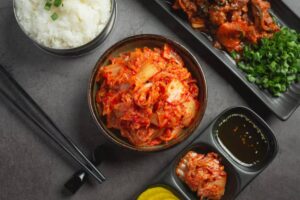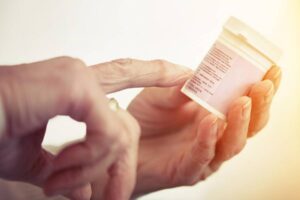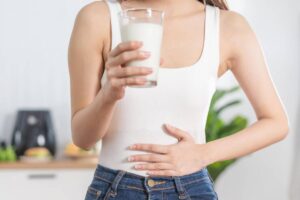Health Blog

Muscle Recovery and Gut Health: How Probiotics Fuel Your Fitness
Is Your Gut the Missing Piece in Your Recovery?
Have you ever done a tough workout and then felt sore and stiff for days? You’re not alone. Muscle recovery is important for everyone. It matters whether you’re a pro athlete or just starting out. It will help you move along toward a result and not get hurt.
What if there’s more than protein shakes and post-workout stretches to help you recover faster? New research suggests that gut health matters. Probiotics can also help with muscle recovery, control inflammation, and improve fitness.
This article looks at how gut health affects muscle recovery. We’ll discuss the role of probiotics and share tips to boost your fitness from within. Ready to give your recovery routine a gut-friendly upgrade? Let’s dive in.
Why Muscle Recovery Matters
The Basics of Muscle Recovery
Muscle recovery is how your body heals tiny tears in muscle fibres from exercise.
This process is essential for:
- Building muscle strength and size
- Reducing soreness
- Preventing injuries
Without proper recovery, you risk overtraining, burnout, and stalled progress. Traditional recovery strategies often focus on nutrition, hydration, sleep, and rest days. But now, the gut microbiome is gaining attention.
The Gut-Muscle Axis: More Than Digestion
What Is the Gut Microbiome?
Your gut microbiome is a complex mix of trillions of bacteria, fungi, and other microbes. They all live in your digestive tract.
Far from being passive passengers, these microbes play a vital role in:
- Digesting food and absorbing nutrients
- Regulating inflammation
- Supporting immune function
These functions are directly tied to how well your body recovers from exercise.
Gut Health and Muscle Recovery: The Connection
When your gut is in good shape, it can:
- Reduce Inflammation: A healthy microbiome helps control inflammation. This is important after muscle damage from exercise.
- Boost Nutrient Absorption: Protein, amino acids, and magnesium help repair muscles. The gut helps absorb and process these efficiently.
- Support Immune Health: A strong immune system fights off infections and aids in the healing process.
Research Insight: A study was published in Nutrients (2021). Athletes with a diverse gut microbiome had less inflammation. They also recovered better than those with unbalanced gut flora. This is where probiotics enter the conversation.
Probiotics: Small but Mighty Helpers
What Are Probiotics?
Probiotics are live microorganisms that offer health benefits when consumed in adequate amounts. Known as “friendly bacteria,” they balance your gut microbiome. They support digestion and boost immunity.
Key probiotic strains for muscle recovery include:
- Lactobacillus plantarum
- Bifidobacterium longum
- Lactobacillus rhamnosus
These strains help reduce inflammation, improve gut barrier function, and support immune health. All of these are important for recovery.
How Probiotics Aid Muscle Recovery
Let’s break down exactly how probiotics can support your muscle recovery process:
1. Reducing Inflammation
Exercise-induced muscle damage leads to an inflammatory response. Some inflammation helps healing, but too much can slow recovery.
Probiotics help regulate this response, ensuring it’s effective but not excessive. They produce short-chain fatty acids (SCFAs) like butyrate, which have anti-inflammatory effects.
2. Enhancing Nutrient Absorption
A healthy gut improves the absorption of key nutrients needed for muscle repair, such as:
- Amino acids (the building blocks of protein)
- Magnesium (supports muscle function)
- Vitamin D (involved in muscle recovery and immune health)
Probiotics support the gut lining, enhancing its ability to absorb these nutrients efficiently.
3. Strengthening Gut Barrier Function
Intense exercise, especially endurance training, can increase gut permeability (often called “leaky gut”). This allows harmful substances to enter the bloodstream, triggering inflammation.
Probiotics help to strengthen the gut lining. This prevents leakage and creates a better environment for muscle recovery.
Real-World Example: Sarah’s Story
Sarah is a 28-year-old fitness enthusiast. She often felt drained and sore after her HIIT sessions. Despite following a balanced diet and taking protein supplements, her recovery lagged. She researched and added probiotic-rich foods. She also took a daily supplement with Lactobacillus plantarum.
Within two months, Sarah noticed:
- Less muscle soreness after intense workouts
- Improved digestion and fewer bloating issues
- Quicker recovery times, allowing her to train more consistently
For Sarah, nurturing her gut health proved to be a game-changer in her fitness journey.
The Research Behind Probiotics and Fitness
Scientific Insights
- Recovery and Inflammation: A 2022 study in Frontiers in Physiology found that probiotics, particularly Lactobacillus strains, lowered inflammation markers in athletes. This led to quicker recovery.
- Immune Health in Athletes: The British Journal of Sports Medicine (2018) found that probiotics cut down upper respiratory infections in athletes. This helps them stay healthier and train more consistently.
- Gut Integrity During Exercise: A review in Nutrients (2020) showed that probiotics help protect the gut barrier during endurance sports. This protection can lower GI distress and reduce systemic inflammation.
Incorporating Probiotics into Your Fitness Routine
Choosing the Right Probiotics
Here’s what to look for when selecting probiotics for muscle recovery:
- Strain specificity: Choose strains like Lactobacillus plantarum and Bifidobacterium longum.
- CFU count: Aim for 10-20 billion CFUs (colony-forming units) per serving.
- Multi-strain formulas: A diverse mix of strains supports broader gut health.
- Third-party testing: Ensure the product is tested for potency and quality.
Probiotic-Rich Foods

Prefer food over supplements? Great choice. Here are some probiotic powerhouses:
- Yoghurt (with live cultures)
- Kefir (fermented milk drink)
- Sauerkraut (fermented cabbage)
- Kimchi (fermented vegetables)
- Miso (fermented soybeans)
- Tempeh (fermented soy product)
Pro Tip: Pair probiotics with prebiotics—fibres that feed your good bacteria. Think bananas, garlic, onions, and oats.
Potential Pitfalls and Precautions

While probiotics are generally safe, here are a few things to keep in mind:
- Introduce slowly: Starting with a dose that is too high can cause bloating or discomfort.
- Be consistent: Probiotic benefits build over time. Stick with your routine.
- See a professional: This is especially true if your immune system is weak or you have gut health issues.
Conclusion: A Gut-Friendly Approach to Faster Recovery
In the world of fitness and muscle recovery, it’s easy to focus on the obvious—protein, rest, and hydration. But what happens inside your gut plays an equally vital role.
Adding probiotics to your routine, either via supplements or fermented foods, helps your digestion. It also reduces inflammation, boosts nutrient absorption, and aids muscle recovery, making you stronger.
Ready to unlock the gut-health advantage?
Start today. Add probiotic-rich foods to your meals or explore a quality probiotic supplement. Your body—and your muscles—will thank you.
Have you noticed a difference in your recovery with probiotics? Share your story in the comments below! And if this article helped you, why not pass it on to a friend or workout buddy?
Let me know if you’d like to expand on specific research studies or tweak the tone for a different audience!









